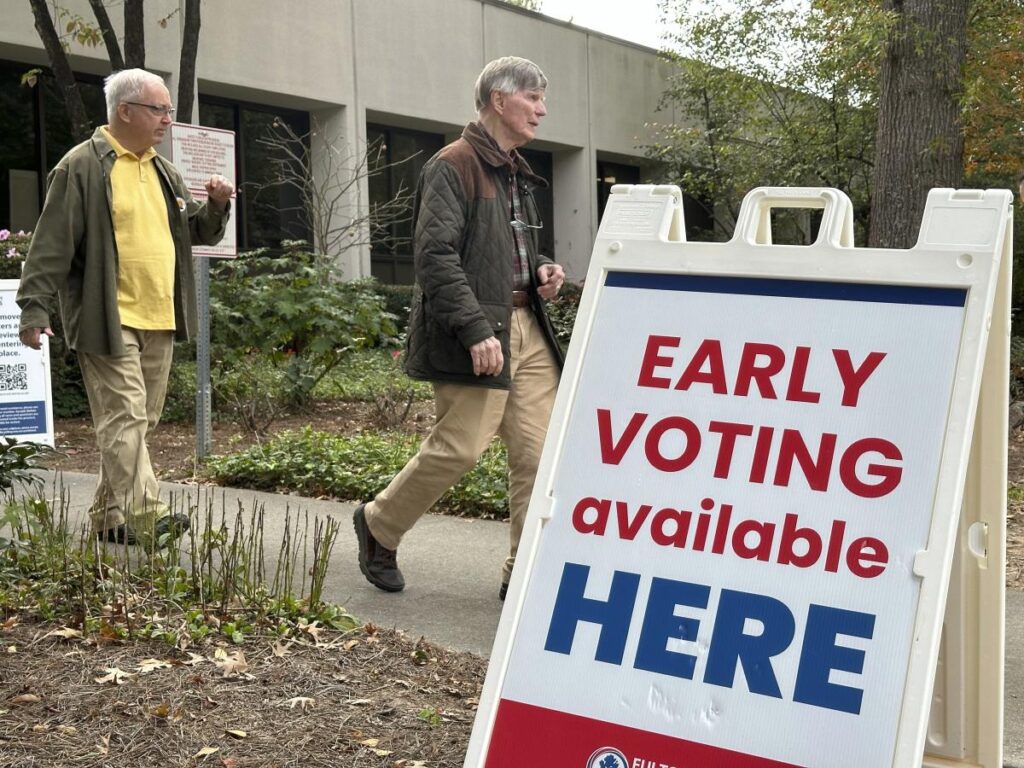The lead-up to the 2024 election has been marred by a surge of false information spread via social media, with several misleading claims surfacing prominently. Among the most notable allegations are that ballots supporting former President Donald Trump in Pennsylvania were destroyed, that Michigan has more registered voters than eligible individuals, and that Georgia’s Dominion voting machines improperly shifted a voter’s choice. Each of these claims has been scrutinized and debunked by officials and experts, highlighting a pattern of disinformation aimed at sowing doubt about electoral integrity.
One of the most alarming pieces of misinformation emerged from a video purporting to show ballots for Trump being destroyed in Pennsylvania. The Bucks County Board of Elections quickly labeled this video as fake, affirming that the materials depicted were not authentic. The FBI, along with other intelligence agencies, flagged the video as part of a concerted effort by Russian actors to manipulate public perception and create discord in the electoral process. This disinformation has been termed “dangerous” by local officials who conducted an investigation, ultimately confirming that an individual behind the video had previously disseminated narratives linked to a Russian disinformation network. This ongoing threat underscores the vulnerabilities of social media as a platform through which false information can rapidly proliferate.
In Michigan, a claim circulated asserting that there were 500,000 more registered voters than eligible voters in the state, suggesting potential fraud. However, this assertion lacks important context. The numbers cited include inactive voters who are still on the rolls due to regulatory requirements, meaning the actual number of actively eligible voters falls below the total registered. Michigan’s Secretary of State, Jocelyn Benson, countered claims made by billionaire Elon Musk and other social media users who misinterpreted the statistics, clarifying that there are more active registered voters than citizens of voting age. The implications of the misinformation were serious enough to prompt a federal lawsuit against the state’s election officials, which was dismissed for lack of standing. Nevertheless, Michigan demonstrates a national trend, with many states maintaining a significant number of inactive voters when ensuring clean voter rolls, reflecting diligent efforts in list maintenance.
In Georgia, another claim falsely suggested that a voting machine had flipped a voter’s choice. This narrative gained traction after a post by U.S. Representative Marjorie Taylor Greene. However, representatives from the Whitfield County Board of Elections clarified that the occurrence was merely a case of voter error, where a ballot was spoiled and subsequently corrected. Officials emphasized that such anomalies are not indicative of machine malfunction; hence, no machines were removed from service. This miscommunication illustrates how quickly rumors can gain momentum without factual backing and emphasizes the importance of accurate reporting in the electoral process.
The misinformation surrounding voting procedures isn’t isolated; it hints at broader patterns of disinformation that political actors exploit to undermine public trust in electoral systems. The FBI has warned of expected further attempts from foreign adversaries to create media content that polarizes public opinion regarding election integrity. This continued sabotage, particularly through fabricated narratives about voting processes and outcomes, serves to destabilize the public’s faith in democratic institutions. As the 2024 election approaches, the fight against disinformation becomes increasingly crucial.
As various narratives spread through platforms like social media, experts and officials urge vigilance in verifying information before sharing it. The repercussions of such misinformation can significantly impact voter engagement and societal trust. The ongoing deterioration of public confidence in electoral processes poses a threat to democracy if left unchallenged. Voter education and the dissemination of accurate information play vital roles in combatting the tide of falsehoods.
Ultimately, the spread of election-related misinformation exemplifies the need for transparency and accountability within the electoral framework. As misinformation continues to circulate, it remains essential for both voters and officials to actively engage in dialogue about the integrity of the electoral process. Assessing the facts, as demonstrated by the responses from various election officials and agencies, is paramount to fostering a well-informed electorate capable of distinguishing between fact and fiction. The stakes are high as the nation approaches a critical electoral juncture, and the commitment to safeguarding democracy must remain unwavering in the face of orchestrated disinformation campaigns.

